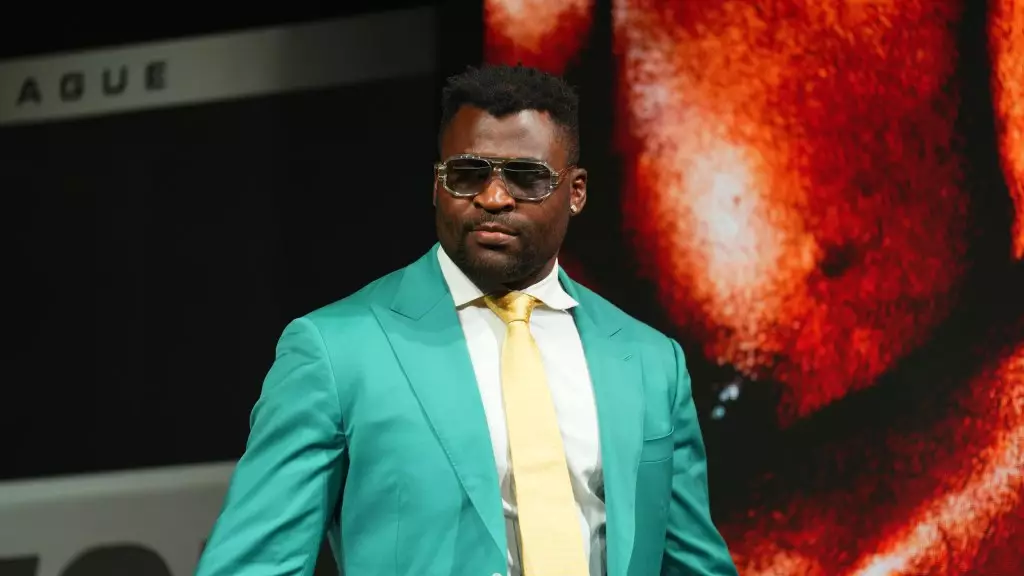The heavyweight division in mixed martial arts (MMA) has always been a battleground of epic proportions, with athletes vying for the title of the “Baddest Man on the Planet.” Recently, Tom Aspinall, the UFC interim heavyweight champion, stirred the pot by critiquing Francis Ngannou’s claim to the heavyweight throne. With a record of 15 wins against just three losses, Aspinall feels confident in asserting that the most formidable heavyweights are competing within the UFC walls, not in rival organizations such as the Professional Fighters League (PFL), where Ngannou is currently competing.
Aspinall’s comments hint at a broader narrative in combat sports: the constant jockeying for position among fighters and the need to establish oneself at the elite level. During an appearance on “The Ariel Helwani Show,” Aspinall acknowledged Ngannou’s accomplishments and personal journey, which have endeared him to fans and fellow fighters alike. However, this admiration does not deter Aspinall from challenging the merit of Ngannou’s current competition.
Ngannou’s upcoming bout against Renan Ferreira, who recently captured the PFL championship, raises eyebrows among purists who question the validity of declaring someone as the best while facing opponents deemed “non-elite.” Aspinall referenced Ferreira’s previous fight with Ante Delija, a mutual connection, which resulted in a quick defeat for Ferreira. By invoking this example, Aspinall articulates a sound argument: if the competition is subpar, then the accolades associated with a winning record may lose some of their luster.
This divide between competition levels presents a compelling point in the ongoing dialogue about the hierarchy of MMA. Aspinall contends that the elite heavyweights, characterized by their exceptional skill sets and fight IQ, are predominantly found in the UFC. The stakes get higher as Ngannou prepares for a fight meant to affirm his status; however, the credibility of that status remains in question due to the quality of his opponents.
Adding another layer to the conversation, Aspinall is staying close to the action by confirming his role as a backup for the heavyweight title fight between Jon Jones and Stipe Miocic at UFC 309. This underscores his intent to remain a pivotal player while still considering the heavyweight landscape as he perceives it. Given his rapid rise in the rankings—marked by an 8-1 record in the UFC—Aspinall is on the cusp of seizing his own championship moment.
The anticipation surrounding his potential title opportunity places Aspinall in an enviable position, not just as a competitor but as a commentator on the sport. His critical stance towards Ngannou serves as a reminder that the story of greatness is often defined not only by victories but also by the caliber of the adversaries faced along the journey.
While both Tom Aspinall and Francis Ngannou hold their respective places in the heavyweight conversation, the legitimacy of claims to the title remains a contentious topic. Aspinall’s insights cast a spotlight on the ongoing struggle for recognition within the heavyweight division and highlight the broader complexities that come with determining greatness in the world of MMA. As each fighter continues to fight battles both inside and out of the cage, the heavyweight division remains a thrilling spectacle filled with rivalries, aspirations, and questions of who truly deserves to wear the crown.

